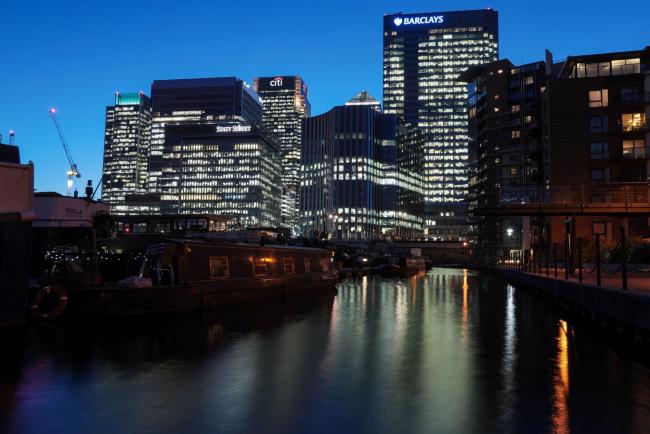(Bloomberg) -- Investors suing Barclays (LON:BARC) Plc, JPMorgan Chase (NYSE:JPM) & Co., Citigroup Inc (NYSE:C). and three other banks were given more time to go through evidence in a London lawsuit over the manipulation of foreign-exchange rates.
Justice Richard Jacobs said on Wednesday that the investors from pension funds and investment management firms needed additional scope to go over documents that will be submitted in a similar U.S. lawsuit. The material may help the investors bolster their claims that the lawsuit should cover a 10-year period.
The banks face lawsuits in the U.S. and U.K. over traders’ manipulation of benchmark foreign-exchange rates. More than a dozen financial institutions have paid about $11.8 billion in fines and penalties globally in regulatory probes, with another $2.3 billion spent to compensate customers and investors.
Before Jacobs’ ruling, lawyers for the banks criticized the investors’ case, telling the judge that the claims were “vague.”
“We’ve got a whole range of fundamental problems with this” case, Daniel Beard, a lawyer for JPMorgan, told the judge. The essence of what the banks “want to do is understand what the claims are against them. These are very serious allegations. We say they are seriously flawed.”
Wednesday’s hearing follows a decision by U.S. District Judge Lorna Schofield in Manhattan in May to allow most of the claims in a suit filed by a group of 1,300 investment firms and local governments to go forward.
The EU probes covered two cartels that traders ran on online chat rooms, swapping sensitive information and trading plans that allowed them to make informed decisions to buy or sell currencies. Many of them knew each other, calling one chat room on the Bloomberg terminal the “Essex Express n’ the Jimmy” because all of the traders but one met on a commuter train from Essex to London. Other names for rooms were the “Three Way Banana Split” and “Semi Grumpy Old Men.”
While the EU probes focused on the period spanning 2007 to 2013, the U.S. proceedings include an earlier period from 2003 to 2007.
The investors in the U.K. case sought access to the material from the earlier time frame, arguing that these are not separate periods, but a “pattern of collusive behavior” over 10 years, said their lawyer, Marie Demetriou.
The EU is still probing possible collusion in a third chatroom, called “Sterling Lads,” that HSBC Holdings Plc (LON:HSBA) was part of, according to filings prepared for the U.K. hearing. This chat was created by former Barclays trader Christopher Ashton, the Federal Reserve said in 2016, when it fined him $1.2 million and permanently banned him from U.S. banking. Ashton was acquitted of U.S. criminal charges in 2018.
©2020 Bloomberg L.P.
